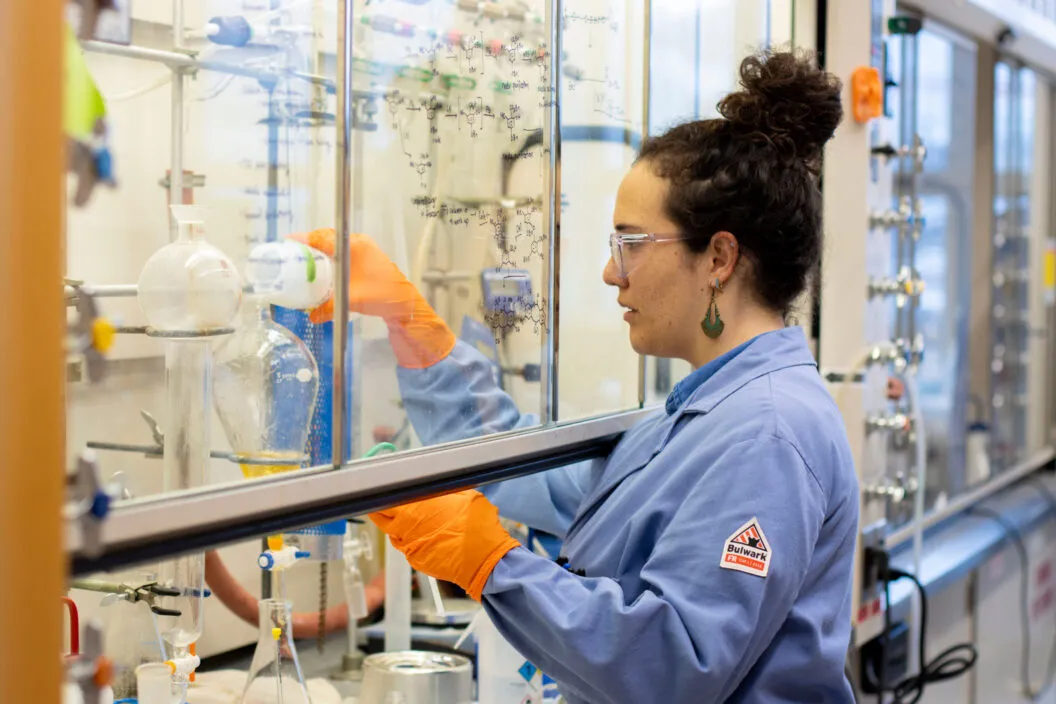The University of Michigan’s Medical School, Life Sciences Institute, College of Literature, Science, and the Arts, College of Pharmacy, and School of Dentistry have collaboratively established the Michigan Pioneer Fellows program. This highly competitive postdoctoral fellowship aims to elevate the research endeavors across the university’s life and biomedical sciences sectors.
The Program offers comprehensive support to exceptional postdoctoral fellows poised for research-intensive careers. Pioneer fellows benefit from a competitive salary and financial resources, along with dedicated mentorship aimed at cultivating and guiding innovative scientists toward transformative career paths.
-
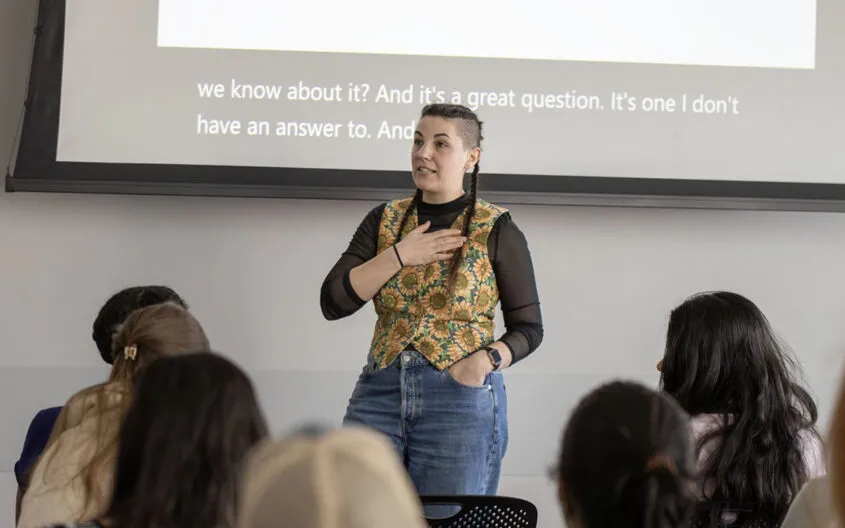
For Fellows
Appointment
- Fellows are appointed full-time for a 12-month period, with the expectation that the appointment will be renewed annually for three years.
- Fellows will join a research group onsite in Ann Arbor in the U-M Medical School, the Life Sciences Institute, the College of Literature, Science, and the Arts, the College of Pharmacy or the School of Dentistry. Fellows are strongly encouraged to pursue training in a highly collaborative environment involving more than one PI.
- The fellowship includes an annual compensation corresponding to 120% of the NIH pay scale for postdoctoral fellows. The mentor(s) and participating units are responsible for 75% and 25%, respectively, of the stipend and benefits. In addition, a sum of $15,000, provided by the unit, will be placed under the control of the fellow to cover expenses related to attendance of scientific meetings, research endeavors, and training and professional development.
- Fellows receive a subsidized health and dental plan for the fellow and their dependents, and optional life insurance. For more information, visit Academic Human Resources.
- Starting dates for the fellowship are negotiable.
Expectations
- Fellows are expected to effectively implement their research and training plans and to identify a mentoring committee that includes their primary mentor(s).
- Fellows are expected to hold biweekly in-person meetings with their primary mentor(s) and to hold in-person meetings with their mentoring committee every six months to review progress and discuss future plans.
- Fellows are expected to dedicate approximately 10% of their efforts to programmatic activities, including participating in training sessions, networking events, and organizing the annual symposium.
- Fellows are expected to compete for external funding.
Professional Development
- Monthly meetings with the Program Directors for career development workshops and scientific discussions.
- Participation in rigorous grant writing workshops for transition awards and K-fellowships.
- Additional training in a broad set of skills necessary for a successful career in research, including scientific writing, oral presentation, lab management and applying for jobs.
-
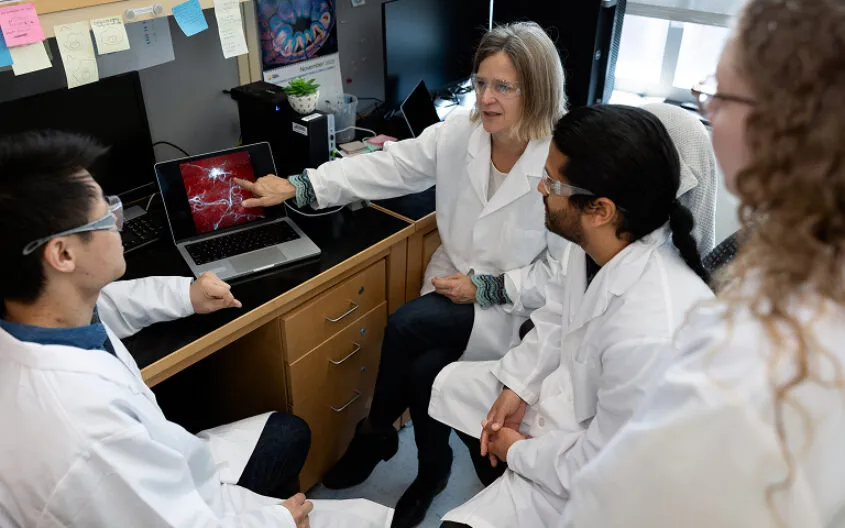
For Mentors
Overview
- Each Fellow must have at least one U-M faculty member from the participating units (U-M Medical School, the Life Sciences Institute, the College of Literature, Science, and the Arts, the College of Pharmacy or the School of Dentistry) serving as the primary mentor at the time of application. The primary mentor must hold a primary appointment from one of the participating units. A secondary mentor with complementary expertise is highly encouraged at the time of application.
- Working together with the Program, the mentors will provide career guidance to the Fellows, meet with them regularly to assess research progress, help the Fellows seek opportunities for career advancement, and participate in activities that strengthen the Fellows community.
Expectations
- Appointment: Fellows are appointed full-time for a 12-month period, with the expectation the appointment will be renewed annually for three years.
- Salary: Pioneer Fellows receive 120% of NIH-level postdoc salary.
- Cost-share: Faculty mentor(s) are responsible to fund 75% of the stipend and benefits of the 120% NIH-level postdoc stipend. The participating unit covers the remaining 25% .
- Discretionary funds: The participating unit will provide a one-time $15,000 discretionary fund to support the fellow’s professional development, attendance at scientific conferences and research needs.
- Office/Laboratory space: Fellows are expected to conduct their work on the University of Michigan’s Ann Arbor Campus.
- Meetings with Fellows: Faculty Mentor(s) are expected to hold biweekly in-person meetings with their fellow and to attend meetings with their mentoring committee every six months to review progress and discuss future plans.
- Mentoring committee: The Fellows are required to form a mentoring committee composed of the primary faculty mentor(s) and at least two additional members. These committee members can be within or external to the University. A Program Director will be invited to attend the committee meeting once/year.
- Support: Faculty Mentors are expected to devote time to provide research and career guidance to the Fellows, hold bi-weekly in-person meetings with Fellows and to be present during the semi-annual meetings with the Fellow’s mentoring committee.
- Participation: Faculty Mentors are expected to participate in Pioneer Program activities, such as networking events and the annual symposium.
-
Program Directors
-
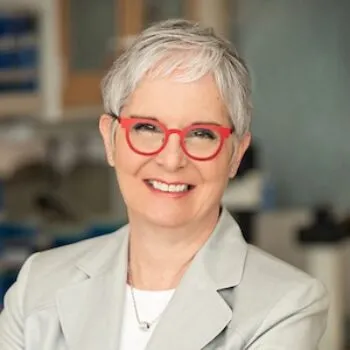
Carole Parent, Ph.D.
Director, Michigan Pioneer Fellows Program; Research Professor, U-M Life Sciences Institute; Raymond and Lynne Ruddon Professor of Cancer Biology and Pharmacology, U-M Medical School Professor of Cell and Developmental Biology, U-M Medical School
Read Bio
“Fostering the potential of postdoctoral fellows is not just about guiding their research; it’s about empowering their journey towards innovation and leadership. Through this mentorship program, I am committed to cultivating their capabilities, inspiring excellence, and shaping the next generation of pioneering minds.” – Carole Parent, Ph.D.
Dr. Parent joined the University of Michigan after serving as senior investigator and deputy director of the Center for Cancer Research at the National Cancer Institute. Dr. Parent’s research interest focus on understanding how neutrophils detect and respond to external chemotactic signals and, in particular, how the spatial and temporal relay of chemotactic signals between cells impact single and group cell migration in the context of inflammation. She is a Fellow of the American Society for Cell Biology and a Fellow of American Association for the Advancement of Science. She was inducted in the Johns Hopkins University Society of Scholars, received the Arthur S. Flemming Award as well as NIH Merit Awards.
-
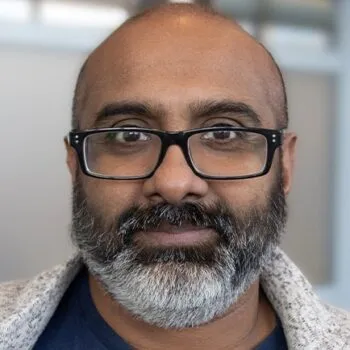
Yatrik Shah, Ph.D.
Co-Director, Michigan Pioneer Fellows Program; Horace W. Davenport Collegiate Professor of Physiology, U-M Medical School; Professor of Molecular & Integrative Physiology and Internal Medicine, U-M Medical School
Read Bio
“I am dedicated to mentoring the next generation of scientists, fostering their skills, resilience, and curiosity to advance their careers and grow as scientists.” – Yatrik Shah, Ph.D.
Dr. Shah did his undergrad at Bowling Green State University and obtained his PH.D at the Medical College of Ohio in 2005. He did a postdoctoral fellowship at the NCI in the laboratory of Dr. Frank Gonzalez. In 2010 he began as an Assistant Professor in the Department of Molecular & Integrative Physiology with a joint appointment in the Department of Internal Medicine, Division of Gastroenterology. He is currently Horace W. Davenport Collegiate Professor of Physiology and Rogel Cancer Center Scholar. His primary research focuses on the role of iron/oxygen coordination in altering cellular metabolism in cancers and chronic inflammatory disorders.
-
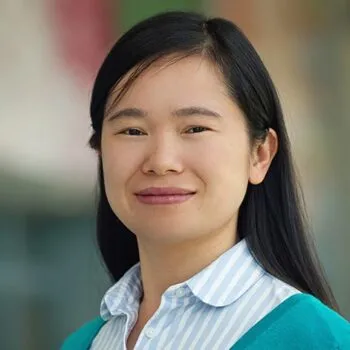
Wenjing Wang, Ph.D.
Co-Director, Michigan Pioneer Fellows Program; Research Assistant Professor, U-M Life Sciences Institute; William R. Roush Assistant Professor, Department of Chemistry, U-M College of Literature, Science, and the Arts
Read Bio
“I am excited to interact with these bright and passionate early career scientists.” – Wenjing Wang, Ph.D.
Dr. Wang’s lab uses cutting-edge protein engineering methods to design novel molecular tools with widespread utilities across cell biology and neuroscience. She is a recipient of the NIH Director’s New Innovator Award, the Camille Dreyfus Teacher-Scholar Award, the NSF CAREER Award and an Alfred P. Sloan Research Fellowship.
-
-
History
The Michigan Pioneer Fellows Program was established in 2023, as a result of the merger between the Michigan Life Sciences Fellows (MLSF) Program and Michigan Postdoctoral Pioneer Program (MP3). This merger maximizes professional development, training, mentorship and collaborative opportunities. Combined, the Michigan Pioneer Fellows Program provides postdoctoral fellows unique opportunities to interact and grow with a cohort of peers, while receiving both the independence to pursue their scientific projects and the necessary support to develop as scientific leaders.


